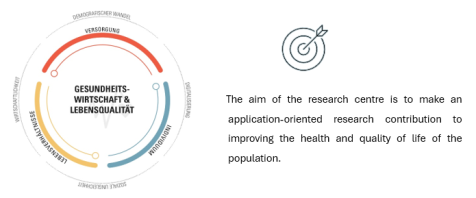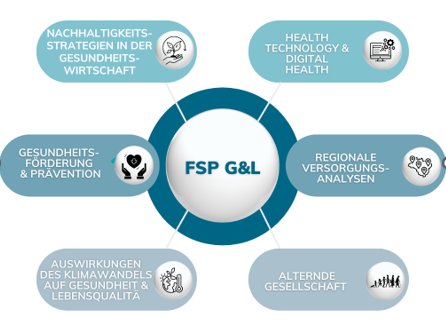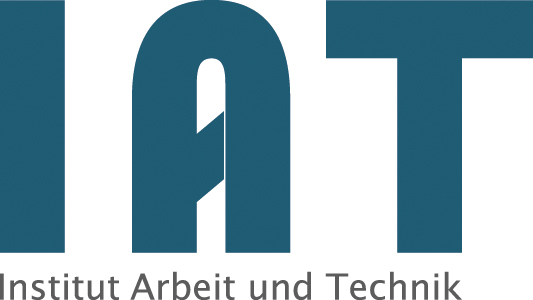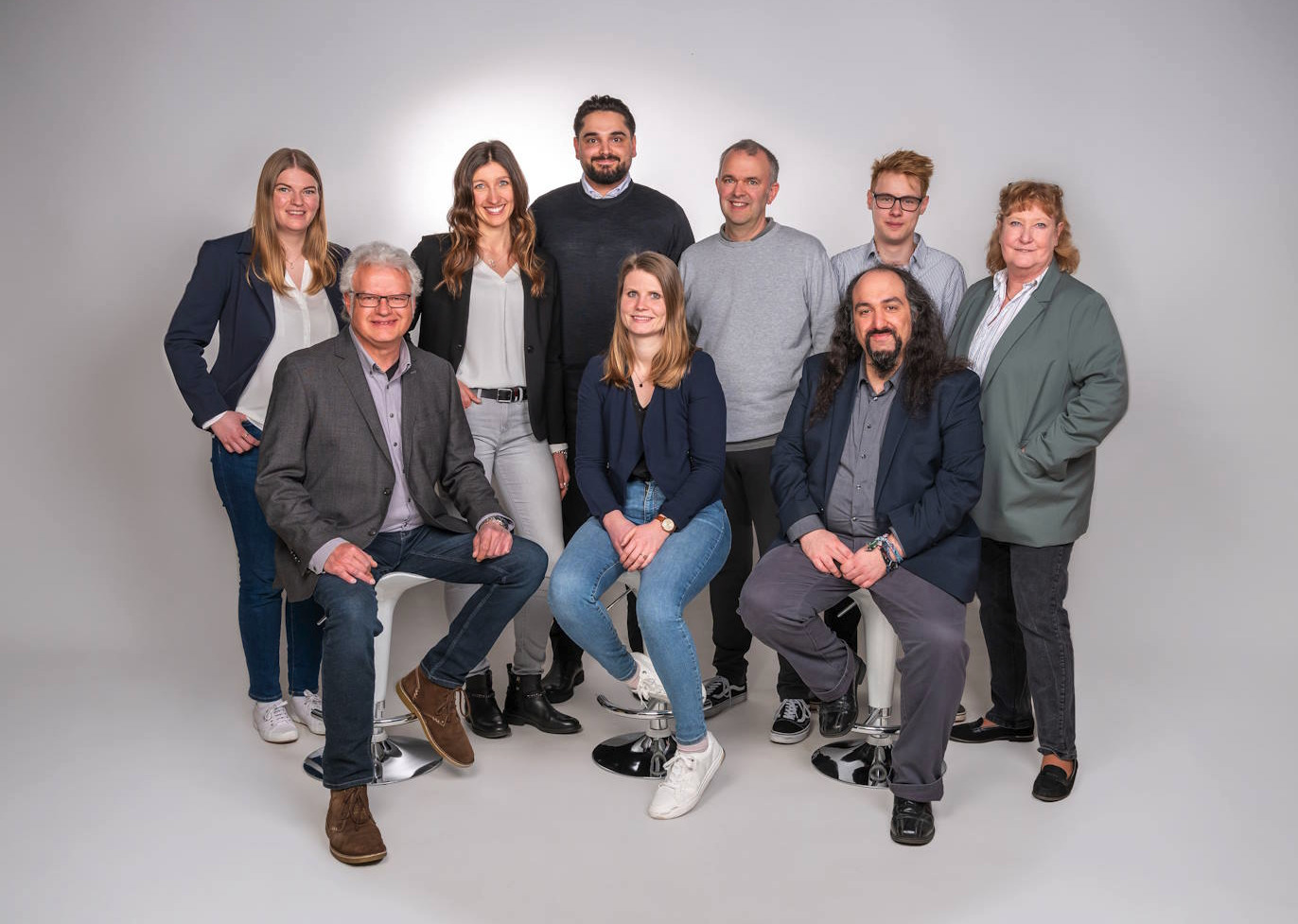Research department Health Industries & Quality of Life
Introducing the research focus Health Economy & Quality of Life
The research focus ‘Health Economy & Quality of Life’ examines health-related issues from three perspectives: What can the individual contribute to maintaining health for as long as possible? How must care processes be organised so that as many people as possible receive the care they need? How must the environment be organised so that people can live healthy lives for as long as possible?
In doing so, we work on questions relating to access to health services and individual health management, as well as environmental and contextual factors that can have an impact on health. In the field of Health Technology & Digital Health, for example, this includes technology acceptance research and the user-friendly design of technologies. We also deal with healthcare issues, which we address by analysing a combination of different types of data (e.g. health, spatial and social data, as well as environmental conditions).
Our cross-cutting topics of digitalisation (How can digitalisation support health care processes in a meaningful way?), demographic change (How can we solve the challenges of an ageing society and use resources?) and social inequalities (How can health services be distributed as fairly as possible?) play a role in all questions.
We assume that the need for health-related services will grow significantly in the future. On the one hand, we therefore endeavour to distribute resources as efficiently as possible in order to secure the population's healthcare needs in the future. On the other hand, we are committed to expanding health-promoting and preventative services. For the future, we would also like to address issues relating to sustainability strategies in the healthcare industry.

Key questions of the research focus
1. the individual: What can the individual contribute to improving health and what conditions must be created for this?
2. care: How must care structures be designed to respond to individual and regional needs?
3. environment: How must the environment be organised to enable a healthy life?
Topics of the research focus

Health Technology & Digital Health
The Health Technology & Digital Health thematic area brings together research work relating to digitalisation and technological innovations in the healthcare sector. This includes, for example, projects on mHealth technologies (technologies that enable digital monitoring of health parameters), AI systems in the care and medical sector, medical devices, technologies for older people and the digitalisation of processes in medical and nursing care facilities.
Regional care analyses
This topic area deals with questions relating to the analysis of regional care needs. These include, for example, the determination of current and expected future healthcare needs in rural and urban areas, neighbourhood research including services of general interest provided by local authorities and social space development.
Ageing society
This topic area focuses on social and economic innovations that should enable people to lead as self-determined a life as possible into old age. Realistic images of ageing are researched and utilised here, taking into account both the resources and deficits of ageing. In addition to classic areas of the silver economy (housing, leisure, digitalisation, etc.), questions of affordability are also addressed in order to take account of growing social inequalities.
Effects of climate change on health and quality of life
The rise in average temperatures and the increase in extreme weather conditions brings with it a number of challenges that are being addressed in this topic area. These include, above all, overloading the healthcare system due to medical emergencies. Measures for behavioural and situational prevention are being researched, tested and optimised in order to be able to respond adequately to climate change with long-term strategies.
Health promotion & prevention
This subject area is concerned with the knowledge and skills of individuals to prevent illness and promote health. This includes concepts such as health literacy, health awareness, health behaviour and personal responsibility for health. Closely linked to this is the target group-orientated preparation and use of health information. In the future, efforts will also be made to analyse health promotion and prevention at the level of society as a whole in the context of global health protection. This includes measures to protect against pandemics, emerging infectious diseases and infectious diseases.
Sustainability strategies in the healthcare industry
It is generally recognised that environmental and economic sustainability strategies are essential for healthcare facilities in order to minimise negative impacts on the environment, promote the health of the population, reduce costs and ensure their own long-term viability. In order to support healthcare facilities in this area, the research focus area aims to increasingly address issues of energy efficiency, waste management and sustainable and regional procurement of goods in the future. To this end, concepts such as the ‘green hospital’ and circular economy approaches in the healthcare sector are to be taken into account.
Cross-thematic services of the research focus
- Project development and management
- ELSI integrated formative evaluation
- Evaluation (summative, formative)
- literature studies
- Knowledge transfer for practice
- Consultancy on a scienti. Counselling for different stakeholders
- Data collection and analysis (qualitative and quantitative)

